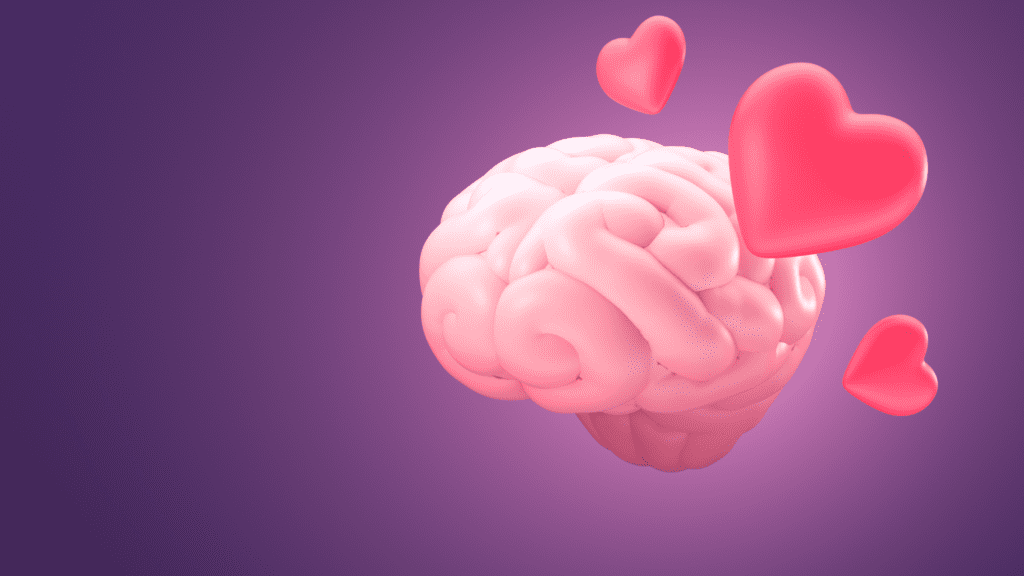The Paradox of it All: Emotional Unavailability
Have you ever been in a situation where you’re seeing someone and they’re super kind, charming, the sex is great and before you even know it, they’ve already introduced you to their family? So, it seems like you should be really happy and yet for some reason you can’t shake this anxious feeling. Okay, the reason you feel anxious might be that they said that they’re not ready for a relationship. But it just doesn’t make sense because someone who is emotionally unavailable surely wouldn’t introduce you to their family, right? They wouldn’t post a picture with you or tell you to put your clothes in their wardrobe. This phenomenon is closely related to emotional detachment, where individuals struggle to form meaningful emotional connections in relationships.
This confusion and anxiety often stem from having an emotionally unavailable partner. Well, actually, sometimes they do. And even though it appears different to when, for instance, someone promises you the world but then acts towards you casually, this is just another side of the same coin. Their words don’t match their actions. And words not matching actions is one of the ten classic signs of emotional unavailability that are seen all over the world all of the time.
Emotionally unavailable people can be challenging to identify at first, but understanding the signs can help you navigate relationships more effectively. Learning to spot emotional unavailability is crucial for protecting your own emotional well-being and making informed decisions about your relationships.
But what does it mean to be emotionally unavailable, and how can you recognize it in yourself or others? In this article, we’ll explore the key indicators of emotional unavailability and discuss strategies for dealing with an emotionally unavailable partner.

The Paradox of Emotional Unavailability
Emotional unavailability can be a confusing and frustrating experience for those on the receiving end. It often presents itself in paradoxical ways, leaving partners feeling confused and uncertain about where they stand in the relationship. Understanding what emotional unavailability is can help you navigate these complex dynamics. Research has shown that strong, healthy relationships are crucial for both mental and physical well-being
Mixed Signals and Inconsistent Behavior
One of the hallmarks of emotional unavailability is the presence of mixed signals.An emotionally unavailable person might engage in behaviors that suggest commitment, such as:
- Introducing you to their family
- Posting pictures with you on social media
- Giving you space in their home
However, these actions are often contradicted by their words or other behaviors that indicate a lack of readiness for a serious relationship.
However, these actions are often contradicted by their words or other behaviors that indicate a lack of readiness for a serious relationship.
The Impact on Emotional Well-being
This inconsistency can have a significant impact on the emotional well-being of the partner seeking a deeper connection. It can lead to:
- Anxiety and uncertainty
- Feelings of confusion and self-doubt
- Emotional exhaustion from trying to decipher mixed messages

Ten Key Signs of Emotional Unavailability
Understanding the signs of emotional unavailability is crucial for protecting your emotional health and making informed decisions about your relationships. Understanding the psychology behind emotional unavailability can help you recognize these signs more easily. Here are ten key indicators to watch out for:
1. They Blow Hot and Cold. When someone alternates between being affectionate and distant, it creates an emotional roller coaster. One moment, they’re fully present, and the next, they’re emotionally absent, leaving you questioning where you stand. The Impact on Your Brain Neuroscience shows that this inconsistency activates the brain’s stress response, releasing cortisol and keeping you in a state of hypervigilance. This constant uncertainty can erode trust and prevent the relationship from developing the stability needed for intimacy.
2. It’s Always on Their Terms. Emotionally unavailable partners often dictate the pace and direction of the relationship, ensuring it aligns with their comfort zone. Control and Avoidance By maintaining control, they can avoid vulnerability and emotional risk. This imbalance often leaves their partner feeling unheard and undervalued. Over time, this dynamic erodes the relationship’s foundation.
3. They Keep It Casual. Emotionally unavailable people may explicitly state they’re not looking for a relationship or subtly act towards you casually despite verbal commitments. Why This Happens Neuroscience highlights the role of oxytocin, the bonding hormone, in deepening emotional connections. When someone avoids intimacy, they disrupt this natural bonding process, keeping the relationship shallow and unfulfilling.
4. They Chase Perfection. Some emotionally unavailable individuals hold out for the “perfect” partner, believing that this person will resolve all their emotional struggles. Unrealistic Expectations This pursuit of perfection creates unrealistic expectations and places undue pressure on their partner. Neuroscience links this behavior to cognitive distortions, where the brain focuses on flaws to justify avoiding vulnerability.
5. Their Actions Don’t Match Their Words. A hallmark of emotional unavailability is inconsistency between words and actions. Mixed Signals For example, your partner may promise commitment but fail to follow through. Neuroscience explains this as a disconnect between the brain’s rational prefrontal cortex and its emotional centers, leading to conflicting behaviors.
6. You’re Left with Crumbs. Being in a relationship with someone emotionally unavailable often feels like surviving on emotional scraps. The Dopamine Trap Sporadic attention or affection may trigger intermittent reinforcement, where unpredictable rewards activate dopamine in your brain. This makes it harder to walk away from unfulfilling relationships, perpetuating a cycle of emotional dependency.
7. They Use Timing as an Excuse. “It’s just not the right time for me” is a common excuse used by emotionally unavailable people to avoid commitment. Shifting Responsibility By blaming timing, they deflect accountability while keeping you emotionally tethered. Neuroscience shows that prolonged uncertainty increases cortisol levels, heightening stress and impacting mental health.
8. The Sob Story. While their pain may be real, overempathizing can lead to neglecting your own emotional needs. Setting boundaries is essential to prevent this imbalance from eroding your well-being.
9. They Fast-Forward Relationships. This behavior, known as love bombing, activates the brain’s reward system, releasing dopamine and creating a false sense of closeness. When the initial intensity fades, the relationship’s lack of foundation becomes apparent, leaving you disoriented.
10. They Keep a Foothold in Your Life. Even when they can’t fully commit, emotionally unavailable people often maintain a presence in your life to keep you emotionally tethered. This creates a cycle of hope and letdown, making it difficult to move on. Establishing clear boundaries is critical to protect your emotional health and create space for healthier connections.
The Impact of Emotional Unavailability on Relationships
Emotional unavailability can have profound effects on both individuals and the relationship as a whole. Understanding these impacts is crucial for making informed decisions about your emotional well-being.
Erosion of Trust and Intimacy
When one partner is emotionally unavailable, it becomes challenging to build and maintain trust. The lack of consistent emotional presence creates barriers to intimacy, preventing the relationship from deepening.
Emotional Exhaustion and Anxiety
Constantly navigating the unpredictable behaviors of an emotionally unavailable partner can lead to:
- Chronic stress and anxiety
- Emotional burnout
- Lowered self-esteem and self-worth
Stunted Relationship Growth
Emotional unavailability often results in relationships that:
- Remain superficial or stagnant
- Lack mutual growth and support
- Fail to meet the emotional needs of one or both partners

Recognizing Emotional Unavailability in Yourself
While it’s important to identify emotional unavailability in others, it’s equally crucial to examine your own patterns and behaviors. Self-reflection can lead to personal growth and healthier relationships. Attachment theory provides valuable insights into how early relationships shape our emotional availability in adulthood.
Signs of Self-Unavailability
You might be emotionally unavailable if you:
- Fear commitment or deep emotional connections
- Consistently prioritize work or other activities over relationships
- Have difficulty expressing or identifying your emotions
- Avoid vulnerability and keep relationships superficial
The Role of Past Experiences
Often, emotional unavailability stems from past experiences or traumas. Understanding these root causes can be a crucial step in overcoming patterns of emotional distance.
Strategies for Dealing with Emotional Unavailability
Whether you’re dealing with an emotionally unavailable partner or working on your own availability, there are strategies that can help foster healthier emotional connections.
Setting Clear Boundaries
Establishing and maintaining clear boundaries is essential when dealing with emotional unavailability. This includes:
- Communicating your needs and expectations clearly
- Being willing to walk away from situations that don’t meet your emotional needs
- Prioritizing your own emotional well-being
Seeking Professional Help
Integrating neuroscience with life and relationship coaching offers a powerful approach to addressing emotional unavailability and fostering personal growth. This innovative method combines scientific understanding of brain function with practical coaching techniques to create lasting change. Here’s how this integration can help:
Neuroscience-Based Insights
By leveraging neuroscientific principles, clients gain a deeper understanding of their emotional patterns and behaviors. This approach helps to:
- Identify neural pathways associated with emotional unavailability
- Understand how past experiences shape current relationship dynamics
- Recognize the brain’s role in forming and maintaining emotional connections
Targeted Interventions
Combining coaching with neuroscience allows for the development of tailored strategies that work with the brain’s natural plasticity. This can include:
- Techniques to rewire neural pathways for healthier emotional responses
- Mindfulness practices that enhance emotional regulation and self-awareness
- Cognitive exercises designed to strengthen areas of the brain associated with empathy and connection
Sustainable Change
The integration of neuroscience in coaching facilitates more sustainable personal transformation by:
- Addressing root causes of emotional unavailability at a neurological level
- Creating new neural pathways that support emotional availability and intimacy
- Providing clients with a scientific understanding of their progress, which reinforces positive changes
Holistic Approach
This combined approach takes into account the whole person, addressing:
- Cognitive patterns that contribute to emotional distance
- Emotional regulation and expression
- Behavioral changes that foster deeper connections
- Physiological responses that impact emotional availability
By integrating neuroscience with life and relationship coaching, clients can gain profound insights into their emotional patterns, develop more effective coping strategies, and cultivate the skills necessary for building and maintaining healthy, emotionally fulfilling relationships
Practicing Self-Care and Self-Compassion
Taking care of your own emotional needs is crucial. This involves:
- Engaging in activities that bring you joy and fulfillment
- Surrounding yourself with supportive friends and family
- Practicing self-compassion and avoiding self-blame for others’ unavailability

Embracing Emotional Availability
Recognizing and addressing emotional unavailability is a crucial step towards building healthier, more fulfilling relationships. By understanding the signs, impacts, and strategies for dealing with emotional unavailability, you can make informed choices about your relationships and personal growth.Remember, everyone deserves a relationship where their emotional needs are met and respected. By prioritizing emotional availability – both in yourself and in your partners – you open the door to deeper connections, greater intimacy, and more satisfying relationships overall.













